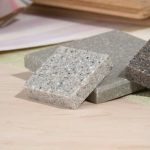Are new kitchen appliances considered home improvements? When it comes to enhancing your property, making strategic upgrades can significantly increase its overall value. Home improvements encompass a wide range of enhancements that can not only make your living space more comfortable but also boost its aesthetic appeal and functionality. From simple cosmetic changes to structural renovations, investing in your home can yield long-term benefits.
Defining home improvements is crucial in understanding their impact on property value. These upgrades often fall into categories such as cosmetic, structural, and functional improvements. Whether it’s updating outdated fixtures or adding modern conveniences, each improvement contributes to the overall appeal and marketability of a home. Among these enhancements, investing in new kitchen appliances stands out for its dual purpose of improving both functionality and aesthetics in one of the most utilized areas of a home.
When considering the distinction between home upgrades and maintenance, focusing on upgrading kitchen appliances can make a significant difference in the perceived value of your property. While routine maintenance ensures that your appliances continue to function optimally, upgrading to newer models can elevate the overall look and efficiency of your kitchen. By making this kind of investment, you not only improve your daily living experience but also enhance the resale potential of your home.
Definition of Home Improvements
Home improvements are changes made to a property that aim to enhance its overall value, functionality, and aesthetics. These enhancements can range from minor modifications to major renovations and can greatly impact the property’s appeal and market worth.
When considering whether new kitchen appliances fall under the category of home improvements, it is essential to understand that they do indeed qualify as such. New kitchen appliances not only improve the functionality of a home but also contribute to its visual appeal.
There are different categories of home improvements, each with its own set of goals and benefits. Cosmetic improvements focus on enhancing the visual appearance of a property, such as painting walls, installing new flooring, or upgrading fixtures. Structural improvements involve changes to the building’s framework or foundation, such as adding a room or reinforcing existing structures. Functional improvements are designed to increase the efficiency and usability of a space, like installing energy-efficient windows or modernizing kitchen appliances.
When homeowners invest in new kitchen appliances as part of their home improvement projects, they are not only updating the look of their living space but also enhancing its functionality. Upgrading to energy-efficient appliances can lead to cost savings on utility bills over time while providing modern conveniences that cater to contemporary lifestyle needs.
As a result, investing in new kitchen appliances can have a significant impact on the overall value of a property and make it more appealing to potential buyers in the future.
| Categories | Description |
|---|---|
| Cosmetic Improvements | Enhance visual appearance (painting walls, installing new flooring) |
| Structural Improvements | Changes building framework or foundation (adding rooms, reinforcing structures) |
| Functional Improvements | Increase efficiency and usability (installing energy-efficient windows, modernizing appliances) |
Types of Home Improvements
Kitchen appliances play a significant role in the overall functionality and aesthetics of a home, making them a key aspect of home improvements. While some may question whether new kitchen appliances are considered as home improvements, they do indeed fall into the category, specifically under functional improvements. Upgrading to newer appliances can enhance the efficiency of the kitchen, improve energy consumption, and elevate the visual appeal of the space.
When it comes to home improvements, there are generally three main categories: cosmetic, structural, and functional improvements. Cosmetic improvements focus on enhancing the appearance of a property, such as repainting walls or updating decor. Structural improvements involve changes to the layout or foundation of a house, like adding an extension or replacing roofing. Functional improvements, on the other hand, aim to improve the usability and performance of various components within a home – including kitchen appliances.
Investing in new kitchen appliances can have a substantial impact on daily living experiences as well as property value. Modern appliances not only offer advanced features that make tasks more convenient but also contribute to energy efficiency which can result in cost savings in the long run. Homeowners looking to increase both their quality of life and potential resale value should consider upgrading their kitchen appliances as part of their overall home improvement strategy.
| Kitchen Appliances | Impact |
|---|---|
| New Refrigerator | Energy-efficient options can lower electricity bills and attract potential buyers |
| Smart Oven | Convenience features like remote control capabilities can enhance cooking experience |
| Dishwasher | Upgrading to a quieter model can improve daily living comfort |
Significance of Kitchen Appliances
Kitchen appliances play a crucial role in the functionality and aesthetics of a home. These essential items are not just tools for cooking or storing food but are also significant in enhancing the overall appeal of a kitchen space.
Modern kitchen appliances are designed to not only make meal preparation more convenient but also to elevate the look and feel of a kitchen. From sleek stainless steel refrigerators to energy-efficient dishwashers, these appliances have become indispensable elements of any modern household.
Functionality
One of the primary reasons why new kitchen appliances
For example, a convection oven can ensure even baking, while a smart refrigerator with built-in cameras allows homeowners to see what’s inside without opening the door. These enhancements not only save time but also contribute to a more streamlined and enjoyable cooking experience.
Aesthetics
In addition to improving functionality, new kitchen appliances can significantly enhance the aesthetics of a kitchen space. Today’s appliances come in a variety of stylish designs and finishes that can complement different decor styles, from traditional to contemporary.
By investing in visually appealing appliances, homeowners can create a cohesive and modern look in their kitchens. Whether it’s choosing matching stainless steel appliances for a sleek appearance or opting for colorful retro-inspired pieces for a bold statement, upgrading kitchen appliances can transform the overall look of a kitchen.
Difference Between Home Upgrades and Maintenance
When considering making changes to your home, it is important to understand the difference between home upgrades and maintenance. While regular maintenance involves tasks like fixing leaks, painting walls, or replacing worn out parts to keep your home in good condition, home upgrades entail enhancements that can improve the overall look and functionality of a property.
Upgrading kitchen appliances falls into the category of home improvements rather than routine maintenance because of the significant impact they can have on both the aesthetics and efficiency of a kitchen.
Functional vs Aesthetic Upgrades
When it comes to kitchen appliances, upgrades can be classified into two main categories: functional and aesthetic improvements. Functional upgrades involve replacing old appliances with newer models that offer improved performance, energy efficiency, and advanced features.
These upgrades not only make daily tasks easier but also contribute to a more modern and efficient kitchen space. On the other hand, aesthetic upgrades focus on enhancing the visual appeal of the kitchen by choosing appliances that complement the overall style and design of the space.
Benefits of Upgrading Kitchen Appliances
Investing in new kitchen appliances as part of a home improvement project can bring numerous benefits. Not only do upgraded appliances enhance the functionality and convenience of your kitchen, but they can also increase the resale value of your property.
Modern energy-efficient appliances not only help you save money on utility bills but also appeal to potential buyers seeking an updated and well-equipped kitchen. By choosing high-quality appliances that align with your lifestyle and design preferences, you can elevate your cooking experience while adding value to your home in the long run.
Impact on Property Value
Investing in new kitchen appliances can have a significant impact on the overall value of a home. When potential buyers are looking for a new property, one of the key areas they focus on is the kitchen.
A modern and well-equipped kitchen with updated appliances can be a major selling point and can attract more buyers. In today’s real estate market, kitchens are considered one of the most important spaces in a home, and having high-quality appliances can make a big difference.
Here are some ways in which investing in new kitchen appliances can increase the property value:
- Enhanced aesthetics: Upgrading to sleek and modern appliances can give your kitchen a fresh and stylish look, which can appeal to buyers looking for a move-in ready home.
- Improved functionality: New appliances often come with advanced features that make cooking and meal preparation easier and more efficient. This can enhance the overall functionality of the kitchen, making it more appealing to potential buyers.
- Energy efficiency: Many new kitchen appliances are designed to be energy-efficient, which not only helps reduce utility bills for current homeowners but also appeals to eco-conscious buyers who are looking for ways to minimize their carbon footprint.
Furthermore, investing in new kitchen appliances as part of a home improvement project shows that the homeowner has taken care of the property and has made valuable upgrades. This can signal to potential buyers that the home has been well-maintained, which can positively impact their perception of the overall value of the property. Ultimately, new kitchen appliances are indeed considered home improvements that can add value to a home both aesthetically and financially.
Return on Investment
Investing in new kitchen appliances can greatly impact the overall value of a home, making it a popular choice for many homeowners looking to increase their property’s worth. While some may wonder, “are new kitchen appliances considered home improvements?” the answer is a resounding yes. Not only do they enhance the functionality and aesthetics of a kitchen, but they also contribute to the overall appeal of a home.
When it comes to analyzing the potential return on investment of upgrading kitchen appliances in terms of resale value, it is essential to consider several factors. One key aspect to keep in mind is the quality and efficiency of the appliances. High-quality, energy-efficient models are not only attractive to potential buyers but can also help reduce utility costs, adding value to the property.
To further enhance the resale value of a home through upgraded kitchen appliances, homeowners should consider popular trends and styles in kitchen design. This may include stainless steel finishes, smart technology features, or eco-friendly options that appeal to modern homebuyers. Additionally, selecting appliances from reputable brands known for their durability and performance can also boost the market value of a property.
- Invest in energy-efficient appliances
- Consider popular trends in kitchen design
- Opt for reputable brands with proven durability
Ultimately, upgrading kitchen appliances as part of a home improvement project can yield a significant return on investment when it comes time to sell. By focusing on quality, efficiency, and appealing aesthetics, homeowners can not only enjoy an enhanced living space but also increase the desirability and value of their property. So, for those wondering if new kitchen appliances are considered home improvements – the answer is clear: yes, they certainly are.
Tips for Choosing New Kitchen Appliances
Investing in new kitchen appliances can indeed be considered a home improvement that not only enhances the functionality and aesthetics of your space but also adds value to your property. When it comes to selecting the right appliances for your kitchen, there are several factors to consider in order to maximize the benefits of this home improvement project.
Firstly, it is important to assess your needs and priorities when choosing new kitchen appliances. Consider the size of your family, your cooking habits, and how often you entertain guests. This will help determine the capacity and features you require in your appliances, ensuring they meet your specific requirements.
Secondly, think about the overall design and style of your kitchen. Select appliances that complement the existing aesthetic of your space or consider a cohesive theme if you are planning a full kitchen renovation. Matching or coordinating appliances can create a cohesive look that adds to the overall appeal of your kitchen.
Lastly, prioritize energy efficiency when choosing new kitchen appliances. Energy-efficient models not only help reduce utility costs but also appeal to environmentally conscious buyers if you decide to sell your home in the future. Look for appliances with an Energy Star rating to ensure they are both eco-friendly and cost-effective in the long run.
In conclusion, investing in new kitchen appliances can be a valuable home improvement project that not only improves functionality and aesthetics but also increases the overall value of your property. By carefully considering your needs, design preferences, and energy efficiency requirements when selecting appliances, you can maximize the benefits of this upgrade for years to come.
Frequently Asked Questions
Are New Appliances Considered Home Improvements for Tax Purposes?
New appliances are typically not considered home improvements for tax purposes. Instead, they are usually categorized as personal property rather than part of the structure of the home. Therefore, they are not eligible for tax deductions related to home improvements.
Is Replacing an Appliance a Repair or Improvement?
Replacing an appliance is generally classified as a repair rather than an improvement. Repairs are typically done to restore something to its original functioning state, while improvements involve upgrading or enhancing a property. In most cases, replacing an appliance is seen as necessary maintenance rather than a significant enhancement.
Do Appliances Count as Capital Improvements?
Appliances may be counted as capital improvements in certain circumstances. If the appliances are built-in or permanently attached to the structure of the home, they may be considered part of the overall capital improvement project. However, standalone appliances that can be easily removed or replaced are less likely to be classified as capital improvements for tax or valuation purposes.

I’m thrilled to have you here as a part of the Remodeling Top community. This is where my journey as an architect and remodeling enthusiast intersects with your passion for transforming houses into dream homes.





